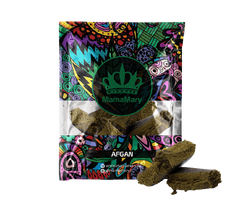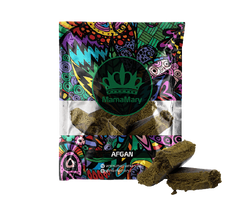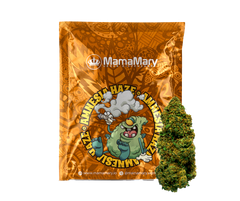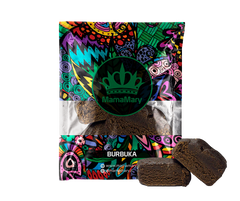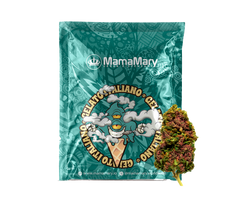Let's discover H4CBD: In search of the new Semisynthetic Cannabis Molecule
If you are intrigued by the latest news in the world of cannabinoids and light hemp, you are in the right place! In this article we explore the fascinating world of H4CBD, a newcomer to the landscape of cannabis-derived compounds. We will discover together its origins, its effects and potential therapeutic applications. Whether you are an avid cannabis expert or simply interested in the latest developments in cannabinoid research, this article will be your guide to understanding the mysterious world behind this new molecule and the discoveries made while studying this compound.
What is H4CBD?
What is H4CBD? H4CBD, an acronym for Hydrogenated Cannabidiol, is a synthetic cannabinoid that has attracted interest due to its potential beneficial properties. Unlike traditional cannabinoids derived directly from the hemp plant, this much more potent cannabinoid than CBD is produced through a process known as hydrogenation, which involves the addition of hydrogen atoms to the molecular structure of CBD. This molecular modification leads to the creation of a compound that has unique characteristics and effects compared to its natural counterpart.
Studies suggest that this cannabinoid may have similar effects to CBD, but with up to 100 times greater potency, making it much more similar to THC in its psychoactive potential. In fact, it can have psychoactive and relaxing effects, especially depending on the production method and the presence of minor cannabinoids associated with it. This may vary from person to person, and it should be known that this molecule interacts with the CB1 receptors of the endocannabinoid system compared to conventional CBD. A 2006 study demonstrated how the synergy with this receptor can cause effects more similar to THC, such as a pleasant sense of euphoria and relaxation.
The chemistry behind the molecule of this new synthetic cannabinoid

To understand the importance of this cannabinoid, it is essential to delve into its chemical composition and differences compared to other cannabinoids. While the CBD molecule is known for its interaction with the endocannabinoid system, Hydrogenated Cannabidiol undergoes a transformation through the addition of hydrogen atoms, which modify its structure.
The molecular structure of H4CBD, or hydrogenated cannabidiol, is the result of the hydrogenation process of CBD. During this process, four hydrogen atoms are added to the CBD molecule, changing its chemical structure. The exact structure then features 4 hydrogen atoms added to the double bonds present in the CBD molecule, influencing its physical and chemical properties and making it more potent than non-hydrogenated CBD.
H4CBD vs. CBD and THC: What are the Differences?
When comparing this new molecule to better-known cannabinoids such as CBD and THC, significant differences emerge that influence their effects and potential applications.
Hydrogenated Cannabidiol, as previously mentioned, is a hydrogenated cannabinoid. This molecular modification gives H4CBD a unique structure and potentially different positive effects compared to a natural cannabinoid like CBD. On the other hand, CBD and THC (tetrahydrocannabinol) are the two most studied and widespread main cannabinoids present in the cannabis plant.
The effects of CBD are non-psychoactive and its potential beneficial properties, including effectiveness in reducing anxiety, inflammation and pain are numerous and make it very popular in the world of legal hemp. In contrast, THC is primarily responsible for the psychotropic effects associated with cannabis, but it has also demonstrated potential therapeutic benefits, such as pain relief and appetite stimulation.
Due to its synthetic nature and modified molecular structure, it may offer a different activity profile than CBD and THC. While research is still ongoing to fully understand the specific effects of this compound, there is speculation that it may exhibit greater potency and a broader range of beneficial effects.
The differences between H4CBD, CBD and THC mainly lie in their origin, molecular structure and activity profile. While CBD and THC are natural cannabinoids derived from the cannabis plant, H4CBD is a synthetic cannabinoid created chemically in a laboratory. These differences influence the effects and potential applications of each compound, opening new perspectives for the research and development of cannabinoid-based therapies.
Let's Explore the Potential Effects of H4CBD
The effects of H4CBD represent an ever-evolving field of study. While CBD is known for its non-psychoactive effects and potential beneficial properties, Hydrogenated Cannabidiol may offer a different activity profile. Some research suggests that it may interact with the brain's CB1 endocannabinoid receptors differently than traditional CBD, potentially affecting a broader range of physiological processes.
Experience the effects of this cannabinoid in a practical and convenient form with these tasty H4CBD gummies .
H4CBD vs HHC

The differences and similarities between H4CBD and HHC are important to understand when evaluating the efficacy and safety of these synthetic cannabinoids. We have seen similarities and differences between H4CBD and CBD, let's explore those between H4CBD and HHC.
Both are synthetic cannabinoids, produced in the laboratory through chemical processes. The main structural difference lies in their molecular composition. While H4CBD is a hydrogenated form of CBD, made by adding hydrogen atoms to its molecular structure, HHC is a synthetic molecule in its own right, not derived directly from CBD or other natural cannabinoids.
This synthetic origin distinguishes them from natural cannabinoids present in trace amounts in the cannabis plant. While H4CBD appears to be safer and potentially therapeutic, HHC raises concerns about its psychoactive effects and possible mental health risk.
Possible Therapeutic Applications of H4CBD
Hydrogenated Cannabidiol has attracted the attention of experts for its possible beneficial applications in various medical conditions. Preliminary studies suggest that it may have anti-inflammatory and analgesic properties, offering a potential benefit for patients suffering from chronic inflammatory disorders or chronic pain.
A 2022 study examines the effects of H4CBD use on mice with age-associated metabolic dysfunction. The mice were given a high dose of this molecule orally for 4 weeks and monitored compared to mice treated in other ways. The results showed that H4CBD reduced body weight and abdominal fat mass, improved glucose response, and reduced insulin resistance, without affecting fasting glucose and insulin levels. The administration of this cannabinoid also affected the levels of adiponectin, leptin and ghrelin in the blood. In conclusion, chronic use of a high dose of H4CBD could improve the glucose response in individuals with age-related metabolic dysfunction, probably thanks to the reduction of visceral fat.
Regulatory Framework and Future Prospects
The regulatory framework regarding H4CBD in its regulation is still under development. While some countries have adopted specific regulations for synthetic cannabinoids, others still have limits or restrictions regarding the use and marketing of such compounds. It is important to closely monitor the evolution of regulations and the guidance of health authorities to fully understand the legal and regulatory context of this new cannabinoid.
Conclusions: H4CBD Molecule: The Promise

In summary, the H4CBD molecule represents a new frontier in cannabinoid research, offering potential benefits and unique challenges.
Promising findings about H4CBD focus on its potential effectiveness for increasing mental and physical well-being and its distinct effects compared to traditional CBD. Preliminary studies suggest that H4CBD may have greater potency and a wider range of effects thanks to its modified molecular structure. Furthermore, this molecule may offer a different activity profile than CBD, with potential benefits for treating medical conditions such as chronic inflammation and pain.
If you have never taken H4CBD but are curious to try its effects, on our online shop you can find the best H4CBD-based products around, such as these delicious gummies , as well as a wide range of products based on CBD and other cannabinoids and the best selection of light cannabis .






